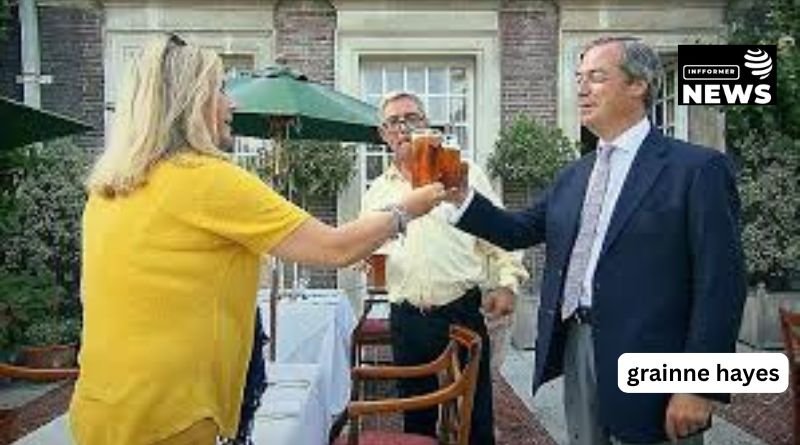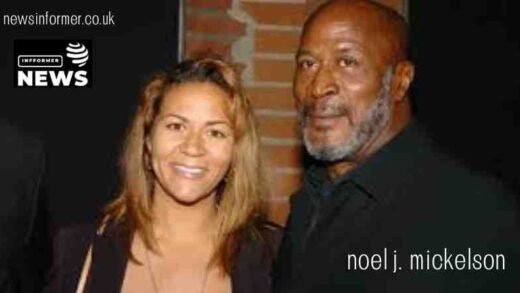Gráinne Hayes: Bridging Science and Real-World Health
Dr. Gráinne Hayes is more than just a name in academia—she is a passionate advocate for physical health, a mentor to rising students, and a respected researcher in the field of exercise physiology. Known for her approachable demeanor and deeply analytical mind, she has built a career around studying how movement (or the lack of it) shapes our lives, especially among children, teenagers, and young adults. With each lecture she delivers and each paper she publishes, Dr. Hayes reinforces a core belief: the way we move matters. Her work brings together hard science, personal insight, and a genuine desire to improve public health in a world that increasingly needs it.
Early Life and Academic Journey
Like many professionals in her field, Gráinne’s interest in health and human performance began with a curiosity about how the body works, especially under pressure—whether that’s in sports, daily life, or in recovery. She pursued this curiosity at the University of Limerick, where she completed her undergraduate studies in Sport and Exercise Sciences in 2013. Her academic achievements were complemented by her natural ability to connect with people and a persistent drive to understand complex human behaviors.
After graduation, she began working within the university, first as a Teaching Assistant and later as a Research Assistant and Project Manager. These roles gave her early exposure to hands-on research, student mentorship, and academic administration. These formative years shaped her understanding of what it takes not only to teach but to lead research projects with real impact.
Doctoral Research and Specialization
Her commitment to research led her to pursue a PhD, which she completed in 2021. Her doctoral thesis tackled one of today’s most pressing health topics: the relationship between sedentary behavior, physical activity, and cardiometabolic health in young people. Rather than treating these behaviors in isolation, she looked at them in the context of daily life—how much time kids spend sitting versus standing, sleeping versus moving—and what this means for long-term health.
This nuanced approach set her apart. Instead of simply advocating for “more exercise,” Dr. Hayes’s work dug deeper into how movement patterns interact with sleep, mental well-being, and metabolic function. Her research underscored a critical reality: improving health isn’t just about gym time—it’s about reshaping lifestyles.
Teaching and Mentorship
Gráinne Hayes is also a gifted educator. After completing her PhD, she expanded her teaching experience at the Technological University of the Shannon, where she helped students understand core principles in health science, sport, and exercise. By 2023, she returned to the University of Limerick as an Assistant Professor in Exercise Physiology, bringing with her a wealth of experience and a renewed energy for teaching.
Her teaching style is engaging and participatory. She doesn’t just deliver lectures; she fosters discussion, encourages debate, and invites students to challenge conventional wisdom. Her classrooms are known for their open environment where students feel empowered to ask questions and apply their knowledge to real-life problems. She also serves as the Course Director for the university’s MSc in Sports Performance—a role that speaks to her leadership and her commitment to shaping future practitioners.
Key Research Themes
The Science of Daily Movement
One of Dr. Hayes’s core areas of research is the measurement of everyday movement behaviors. Rather than looking only at structured exercise (like running or gym workouts), she investigates habitual activities—how people move during the day, how long they sleep, how much they sit, and the small choices they make (like standing instead of sitting, or walking instead of driving). She believes that even minor lifestyle adjustments can significantly influence long-term health.
Tools That Capture Real-Life Behavior
Accurate measurement is at the heart of scientific research, and Dr. Hayes has invested significant effort into evaluating different tools used to measure physical activity. Her research helps ensure that wearable devices, self-report surveys, and other assessment tools produce data that’s not only accurate but also meaningful in real-world contexts.
Behavior Change and Lifespan Health
What drives people to change their behaviors? What keeps them motivated? These are some of the questions Gráinne seeks to answer through her studies on behavior change. By identifying barriers and enablers to physical activity across different age groups, she aims to develop strategies that make lasting change more achievable—whether that’s in schools, workplaces, or communities.

From Academia to Community
What makes Dr. Hayes particularly impactful is her ability to take academic insights and translate them into practical outcomes. She doesn’t see research as something that lives in journals—it’s something meant to be applied. Over the years, she has worked with local schools, sports organizations, and community groups to design programs that encourage healthy movement patterns in daily life.
These community projects might involve designing activity breaks in school routines, introducing fitness modules in public health campaigns, or advising sports teams on evidence-based training. Her hands-on involvement reflects her philosophy: science should serve people, not just publish papers.
Philosophy and Personal Values
At her core, Dr. Hayes is driven by empathy, curiosity, and a desire to see real change. She’s not content with surface-level solutions. Her work always returns to the individual—what can help this person live healthier? What barriers are in their way? What tools or knowledge can we give them?
She emphasizes the value of empathy in both research and teaching, reminding her students and colleagues that behind every dataset is a real person with unique needs and experiences. This human-centered approach is what makes her work resonate so deeply, not just in academic circles but in the everyday lives of those she aims to help.
Looking Ahead
Dr. Hayes shows no signs of slowing down. Her future plans involve expanding her research into areas such as sports technology, injury prevention, and long-term behavioral interventions. She also hopes to collaborate more with international researchers to widen the reach of her work and bring fresh perspectives to ongoing challenges in public health and sports science.
Additionally, she plans to continue building bridges between academia and the wider community—whether that’s through new educational initiatives, community outreach, or interdisciplinary research collaborations.
Conclusion
Gráinne Hayes is a brilliant example of what it means to be a modern scientist and educator. She combines rigor with empathy, research with real-world relevance, and ambition with humility. Her contributions to exercise physiology go beyond the lab or the classroom; they touch lives, shape futures, and influence how we think about health in an increasingly sedentary world.
As she continues to explore, teach, and lead, Dr. Hayes is helping to redefine what it means to live well—and proving that a little movement, guided by knowledge and compassion, can go a long way.
Read aslo:





























































